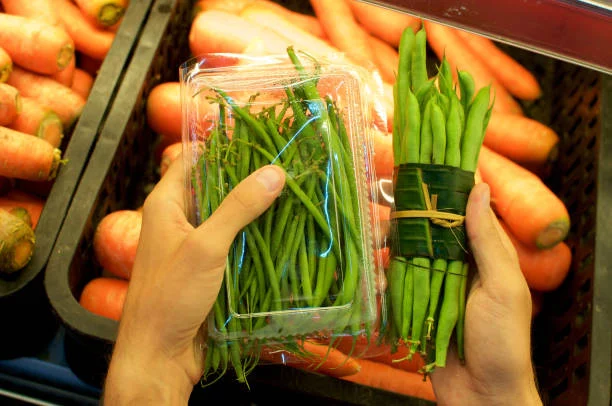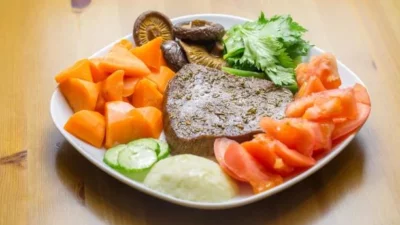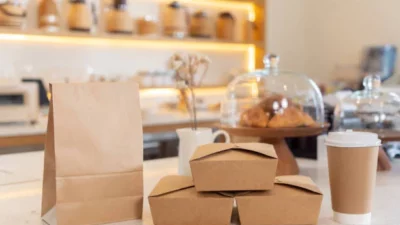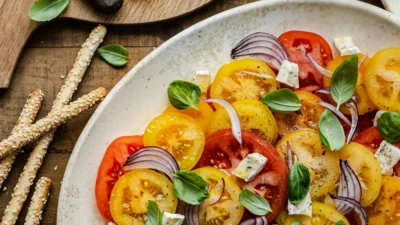The organic food industry has always been about more than what’s inside the package. As consumers become more environmentally conscious, they’re also paying closer attention to how their food is packaged.
The challenge for organic food companies is finding packaging that protects their products while supporting their environmental mission.
Why Sustainable Packaging Matters for Organic Foods
Organic food buyers often choose these products because they care about environmental impact and health. When organic foods are wrapped in conventional plastic packaging, the product’s values are disconnected from its presentation.
Sustainable packaging helps bridge this gap by ensuring the entire product experience aligns with environmental principles. Eco-friendly packaging also supports the broader goals of organic farming, which focuses on protecting soil, water, and biodiversity.
Types of Eco-Friendly Packaging Materials
Several innovative materials are being used to create sustainable packaging for organic foods. Many organic food producers are now investing in packaging materials that break down naturally or can be recycled easily. Products like fruit puree and other organic foods are increasingly sold in containers made from plant-based materials, recycled content, or biodegradable substances.
Plant-based plastics made from corn, sugarcane, or other crops offer similar protection to traditional plastic but break down more easily in the environment. Paper and cardboard packaging, especially when made from recycled content, provides another sustainable option for many products. Glass containers remain popular because they’re completely recyclable and don’t add chemicals to food.
Reducing Plastic Waste in Food Packaging
The organic food industry is actively working to minimize plastic use through various strategies. Some companies are switching to refillable containers that customers can bring back for refills. Others are designing packaging that uses less material overall while still effectively protecting the product.
Compostable packaging represents another approach to reducing plastic waste. These materials break down in commercial composting facilities, turning into nutrient-rich soil instead of lasting in landfills for decades.
Supporting Biodegradable Solutions
Biodegradable packaging offers significant advantages for organic food products. Unlike traditional plastics that persist in the environment for hundreds of years, biodegradable materials naturally break down through bacterial action or composting processes.
The key to successful biodegradable packaging is ensuring it performs well during the product’s shelf life while breaking down quickly once disposed of properly. This balance requires careful material selection and testing to meet performance and environmental goals..
Challenges in Sustainable Packaging Implementation
Despite the benefits, sustainable packaging faces several hurdles. Cost remains significant factor, as many eco-friendly materials are more expensive than conventional options. Some sustainable materials may not provide the same level of protection as traditional packaging, potentially affecting product quality or shelf life.
Supply chain limitations also present challenges, as sustainable packaging materials may not be as widely available as conventional options. Companies must often work with specialized suppliers and may face longer lead times for sustainable packaging materials.
Consumer Education and Market Acceptance
Educating consumers about sustainable packaging helps drive market acceptance and proper disposal. Many people don’t understand the difference between recyclable, biodegradable, and compostable materials, which can lead to improper disposal reducing environmental benefits.
Clear labeling and consumer education campaigns help people understand how to dispose of sustainable packaging. This education is crucial for maximizing the environmental benefits of these materials and encouraging more companies to adopt sustainable packaging solutions.
Conclusion
Sustainable packaging solutions are becoming essential for organic food companies that want to align their entire product offering with environmental values. While challenges exist around cost, performance, and availability, the growing consumer demand for eco-friendly packaging is driving innovation and investment in this area.
As technology improves and economies of scale develop, sustainable packaging will likely become the standard for organic foods, supporting both environmental goals and consumer expectations. The future of organic food packaging lies in materials that protect products while also protecting the planet.

Lexy Summer is a talented writer with a deep passion for the art of language and storytelling. With a background in editing and content creation, Lexy has honed her skills in crafting clear, engaging, and grammatically flawless writing.



